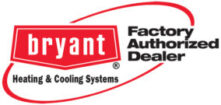Why Is My Air Conditioner Blowing Warm Air? How To Troubleshoot Your A/C!
It’s a hot summer day – and you wake up sweating in bed. Sometimes during the night, your A/C unit failed – and now it’s only blowing warm air.
Don’t panic! This may be inconvenient – and uncomfortable – but if your A/C starts blowing warm air, there’s a reason for it. If you follow some basic troubleshooting tips, you may be able to understand (and fix) the problem yourself!
So check out this quick guide to troubleshooting your A/C when it’s blowing warm air! You’re sure to learn a thing or two, and gain a deeper understanding of your HVAC systems!
- Check Your Thermostat
Okay, this seems obvious – but sometimes the most obvious solutions are the ones that we least expect!
Today’s modern thermostats often have a variety of settings. If your thermostat has an “auto” function, the fan will blow when the A/C unit is cooling air – and it will turn off otherwise. If your air conditioner fan is not spinning, this could be the reason.
However, if your thermostat has an “on” setting for the fan, the fan will always blow – even when the air is not being cooled. This can result in “warm” air being distributed around your home.
If your thermostat isn’t the problem, read on and learn about other common issues affecting air conditioner performance.
- Change Your Air Filter
Air filters are wonderful things – they prevent dust, debris, and even some microbes from entering your home! But they don’t last forever – and should be replaced regularly. Because they filter debris from the air, they can get severely clogged with dirt, pet hair, dust, and a variety of other nasty stuff.
If you have a seriously dirty air filter, your A/C performance could be affected. The condenser unit won’t get enough airflow and could “freeze up” which will cause your unit to stop working until the filter is replaced.
Does your filter look clean? Okay! Let’s move onto the next step.
- Check And Clean Your Condensing Unit
Your condensing unit is the part of your A/C that collects air from outside, and allows it to be cooled. If it’s seriously dirty or its airflow is obstructed by debris, your A/C may not operate efficiently, and could blow warm air.
If you have a central A/C unit, head outside to the condenser and examine it. If it’s dirty, you can scrub it clean with some foaming coil cleaner and a garden hose. If it’s obstructed by plant life or other debris, remove them from the area.
If you have a window unit, you can remove it and bring it inside. Remove it from the mounting frame and case, and use compressed air, a soft bristle brush, and household cleaner to remove debris or buildup.
Coils clean? A/C Still not working? Let’s move on!
- Look For Refrigerant Leaks
Refrigerant is the substance that is used for heat transfer, and allows your A/C unit to function correctly. If you have a refrigerant leak, your A/C will not be able to cool air adequately, because there won’t be enough fluid for it to use.
There are 3 popular methods to test for refrigerant leaks – but the easiest to do on your own is the “soap bubble” test. Here’s how it works.
- Switch on the A/C system
- Make a soap solution using dish soap and water, and pour it into a spray-bottle container
- Ensure the test area is free from wind
- Clean the test area with a clean, dry cloth
- Spray the solution generously over the test site
- Watch for soap bubbles to form.
If soap bubbles do not form, it’s unlikely that you have a refrigerant leak. However, you may still want to contact an HVAC technician to perform a test – using UV light or electronic devices, they can double-check for refrigerant leaks.
- Listen For A Bad Compressor
The compressor is at the heart of your A/C unit. It’s responsible for the heat transfer process which allows cooling – and if it fails, your A/C won’t function correctly. Unless you’re an HVAC technician, you won’t be able to repair this yourself – but you can still listen for signs of a faulty compressor. Head over to your A/C unit and listen for:
- “Chattering” or “ticking” noises – This usually means that your compressor is struggling to turn on, and it may be wearing out.
- Clicking/rumbling/rattling noises – If the compressor motor mount fails, the compressor may start moving around inside your unit – impacting other components and causing loud noises.
If you hear anything that seems strange or out of place, that could be a sign that your compressor has failed – and you should call an HVAC technician to confirm this. The cost of replacing a compressor is expensive – so you may be better off purchasing a new A/C unit.
Still Can’t Find The Problem? Call A Professional
Your air conditioner is a delicate appliance – and a huge variety of things can cause it to malfunction or fail. So if you’ve gone through the above troubleshooting steps and still don’t know what’s wrong, you need to call an expert.
An HVAC technician can perform comprehensive troubleshooting on your system, and analyze it to understand why it isn’t functioning correctly.
So don’t worry – you don’t have to troubleshoot your HVAC system on your own! Call a professional today, and you’ll be back to enjoying cool, clean, air-conditioned air.


